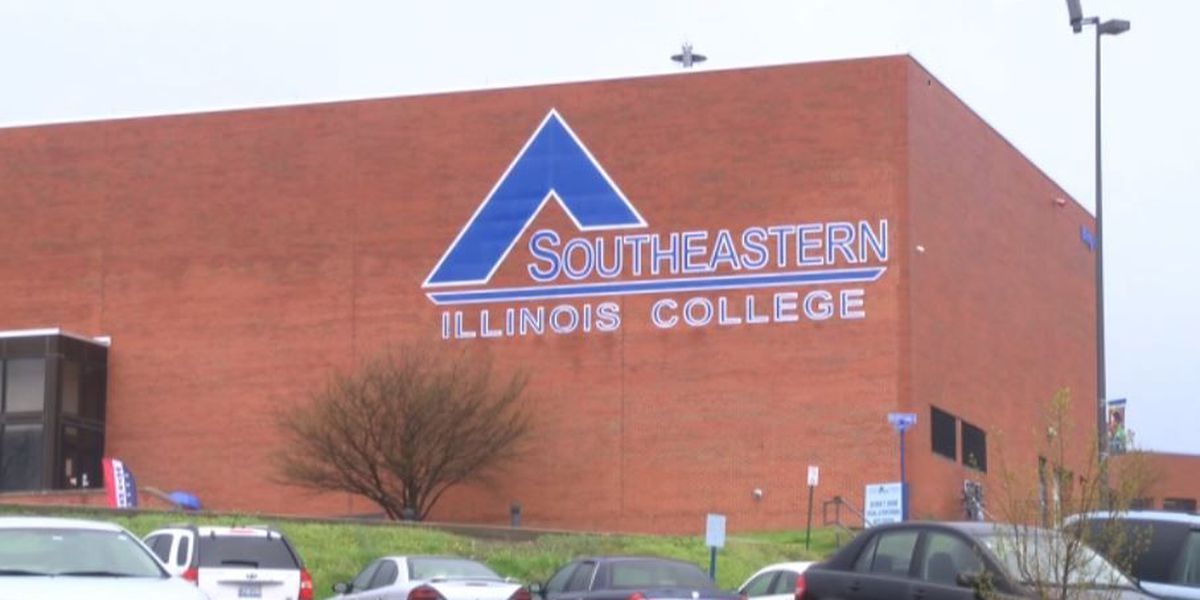
HARRISBURG, Ill. (July 20, 2020) – The Southeastern Illinois College Board of Trustees met Tuesday, July 14, to review a return to campus plan for fall, discuss extracurricular activities for fall, learn about enrollment standings, examine an in-house COVID-response survey of students, and discuss the continued need for a facilities expansion in Carmi, among other topics.
The board reviewed and approved the more than 30-page Return to Campus Plan for fall, which can be found on the SIC website at sic.edu/fallplan. The plan details how the college will make a safe return with the use of masks, social distancing, self-monitoring, newly installed additional hand-washing and sanitizing stations, thermo scan stations, no-touch bottle fill stations, no-touch door openers, and protocols for various spaces on campus.
“We continue to make improvements to safety and work with local and state officials in meeting their charge to return to school in a hybrid format,” said SIC President Dr. Jonah Rice.
The college will also remain closed to the public without pre-approval by written request to cabinet members in cases where campus time would be considered necessary. Only employees, students and essential visitors will be allowed on campus, and time on campus will be minimized. Employees of each area will be rotating between working in the office and working from home. Typical classes will look different as some may be on campus one day of the week, then converted to online components the rest of the week. Instructors have options for various hybrid formats to fit the needs of their individual courses, with a recommended staggering of days on campus within each division to minimize the overall campus population at any given time. Online classes will be available, as always, since 2001. For students with limited access to internet at home, the Learning Commons will remain open for a limited number of students at one time, and parking lot hotspots will remain available for this academic year.
The board also launched the extra-curricular plan for the year in regard to safety during the pandemic.
“We used a clear logic for our many extra-curricular activities, athletic and non-athletic, holding each one up to our matrix of indoor/outdoor and no/low contact or high contact,” said Rice. “That logic system was employed prior to any discussion regarding travel, overnights, practices, etc. Activities like archery, bowling, baseball, softball, etc. can be done with some constraints and follow the safeguards. Other activities simply cannot safely operate. Nothing will be ‘as usual’ for any activity as many changes and safeguards will be in place. Activities in the ‘indoor/high contact’ range will be canceled for the year.”
Some of those high contact-range activities included in the one-year postponement are large scale musicals, choirs, Cultural Arts Series events, and basketball.
“The major rationale discussed at the board meeting and with attorneys, our insurance underwriter, and health officials include these major issues: 1) Too high of a health and liability risk, 2) Too much state funding is at risk being fully noncompliant with the Restore Illinois Plan, and 3) Not be disingenuous to recruits,” said Rice.
Any students under scholarship for those canceled activities will not lose their scholarships. However, those who may decide to attend another college will be released from their commitment to SIC. Several teams may have safe options to compete virtually this year, such as the Forensic Falcons, the Phi Beta Lambda Business Club, Phi Theta Kappa Honor Society, and Model Illinois Government. Travel will be highly restricted for all teams.
At the time of the board meeting, SIC enrollment was 20% down for fall, which is in line with most colleges across the state.
A COVID-response survey and pair of focus groups was conducted by SIC’s executive director of institutional effectiveness and research Chris Barr and executive dean of student services Dr. Tyler Billman. The purpose was to capture the historic moment unparalleled in modern history and to measure the impact on students and student learning, as well as SIC’s response to the crisis.
“Overall, our students gave SIC high marks for its quick response to the COVID-19 pandemic, and for the concern shown for our students,” said Barr.
The survey had 277 student responses and demonstrated that an overwhelming 94% agreed the staff and administration have done a good job protecting students. Another 82% agreed the staff and administration have done a good job helping students adapt to the sudden changes in course delivery.
“Our two focus groups revealed a sincere appreciation from our students for the great strides our faculty have made to keep courses active, available and communication open during the unprecedented move to fully online,” continued Barr. “The survey along with the two focus groups also helped us understand that our students are feeling more stress than unusual. Students reported they worry about the future, the safety of their loved ones and their educational goals more now than before the pandemic. They also expressed concern for the technology necessary to continue online delivery for an undetermined amount of time.
“We will continue to build upon this survey and monitor all aspects of student learning even as we adapt to future interruptions. Data collection to address the concerns of our students is an integral part of SIC’s mission and commitment to our district.”
The need for career tech and workforce training to meet the needs of businesses in White County continues. A phased $4 million construction plan for an expansion to the current David L. Stanley White County Center has been in the works for a number of years. Over the last 20 years, funding has been requested from the state, but despite being granted on two occasions, the funding has failed to come through. The college has applied for a Department of Commerce and Economic Opportunity (DCEO) grant. The expansion would encompass welding, mechanics, truck driving and possible residential repair such as plumbing and electrical. The city and private industry are willing partners in multiple venues such as intern ships and possible donations. If no funding is provided from the state or DCEO, phase one will still be implemented in hopes that further funding can be gained in future to continue the plan.
The board approved to change insurance coverage for the college from Cincinnati Insurance to Liberty Mutual due to better coverage and an annual cost savings of about $34,000.
In construction news, the handgun range shelter has been completed and has already been used by local law enforcement for trainings. Additionally, the new trapshooting range lanes have been poured, and trap house work has begun.
A new holiday has been announced by the state to be observed by all government offices, therefore SIC will now be closed Nov. 3 for the 2020 General Election Day.
The board approved a 3% cost of living increase effective July 1 for non-bargaining employees.
In personnel, the board approved the retirement of history instructor, Steve Rea, after 23 years of teaching. The board also accepted the resignations of associate director of enrollment services, Kelsi Love, and Learning Commons Student Success Center assistant, Kayla DePriest.
Approved for hire as the part-time TRIO/Student Support Services administrative technical assistant is Chad Bostick, a former TRIO student and peer mentor for the SIC TRIO program. The board also approved a new adjunct faculty member, Jim Podesva, to teach history, and approved the re-hire of Dara Cox, adjunct psychology instructor.
The board also approved two new grant-funded positions for GED Adult Education in partnership with Rend Lake College – a coordinator and data manager, as well as a student support coordinator.
The next meeting of the board will be held Tuesday, Aug. 18, at 6 p.m. in the Rodney J. Brenner Board Room. More information about SIC can be found at www.sic.edu.














